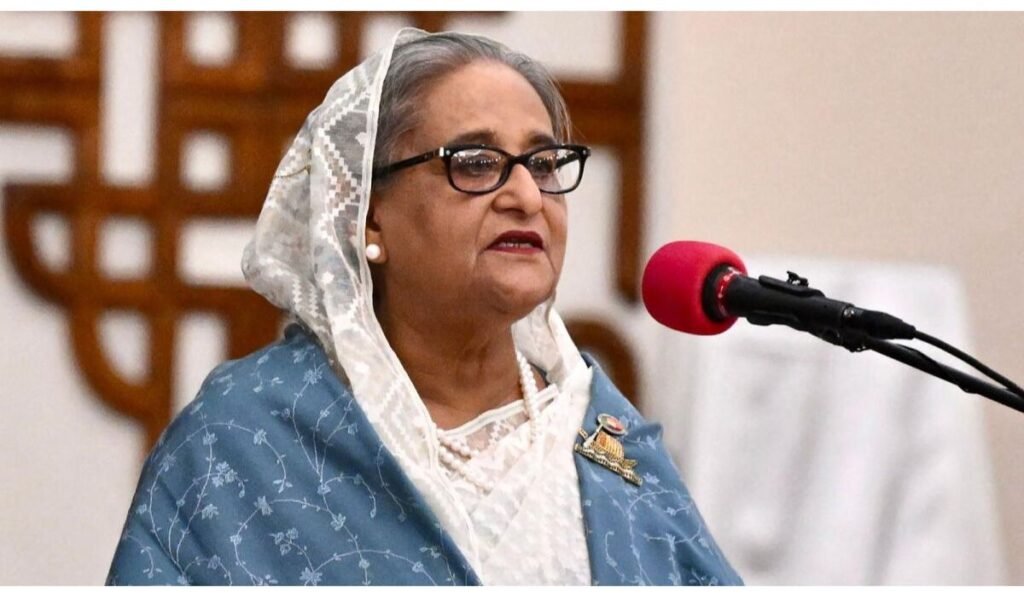A Bangladeshi court on Thursday ordered an arrest warrant for exiled ex-leader Sheikh Hasina, who fled to India in August after she was toppled from power by a student-led revolution. #HasinaArrestWarrant
“The court has […] ordered the arrest of former prime minister Sheikh Hasina, and to produce her in court on November 18,” Mohammad Tajul Islam, chief prosecutor of Bangladesh’s International Crimes Tribunal, told reporters on Thursday.
During Hasina’s 15-year rule, authorities carried out widespread human rights abuses. They detained political opponents in large numbers and conducted extrajudicial killings.
“Sheikh Hasina was at the helm of those who committed massacres, killings and crimes against humanity in July to August”, Islam said, calling it a “remarkable day”.
Hasina, 77, has not been seen in public since fleeing Bangladesh, and her last official whereabouts are a military airbase near India’s capital New Delhi.
Her presence in India has infuriated Bangladesh.
Dhaka revoked her diplomatic passport, and the countries signed a bilateral extradition treaty. This treaty allows her return to face a criminal trial.
A clause in the treaty, however, says extradition might be refused if the offence is of a “political character”.
Hasina’s government created the deeply contentious ICT in 2010 to probe atrocities during the 1971 independence.
The United Nations and rights groups criticized the procedural shortcomings. It was widely viewed as a way for Hasina to remove political opponents. #HasinaArrestWarrant
Several cases accusing Hasina of orchestrating the “mass murder” of protesters are being probed by the court.
Political Implications and Future Outlook of the Hasina Arrest Warrant
Furthermore, political tensions have escalated due to the Hasina arrest warrant. Supporters of Hasina have expressed concerns about the political motives behind the decision. However, critics argue that legal accountability is crucial for upholding justice in Bangladesh.
The arrest warrant raises significant questions about the country’s political landscape. As this situation develops, it could influence future elections.








